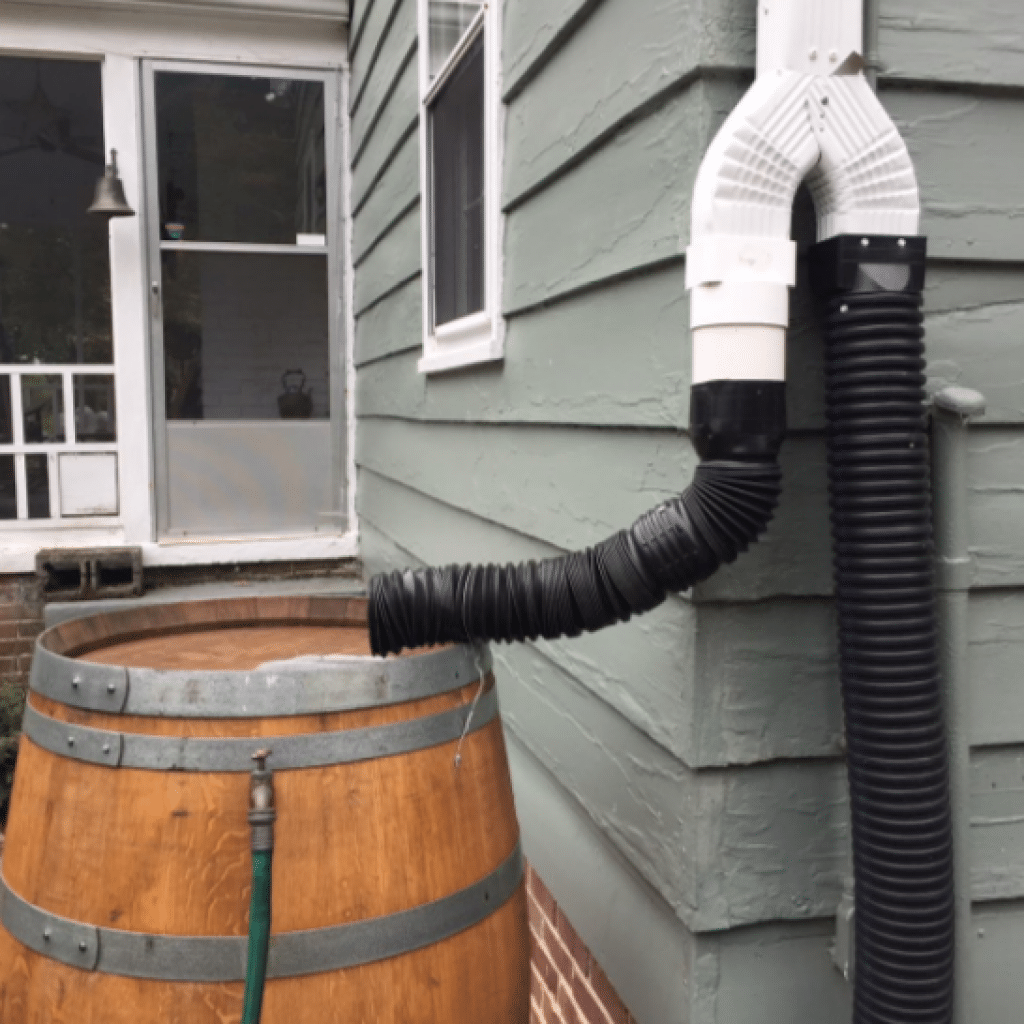Irrigation and Knoxville Lawn Care – Should I or Shouldn’t I?
Irrigation and Knoxville Lawn Care – Should I or Shouldn’t I?
Suitable soil and an adequate water supply are the bare essentials required for a healthy and sustainable garden. It’s why we hope for plenty of rain, and sufficient amounts of sun, during the most critical of the growing season.
But as our climate continues to change, homeowners can’t be dependent on the hopes of sufficient precipitation alone. To be clear, if one’s property is truly sustainable, the need for additional and often costly water presents a difficulty.
For full disclosure, I will admit that I DO have an irrigation system in my garden. But with the incorporation of rain barrels and a rain garden, I find myself depending less on supplemental water.
Below are some key types of irrigation for consideration. Will an irrigation system give you peace of mind?
Water Harvesting in Irrigation
Water harvesting involves landscape enhancements or features that decrease stormwater runoff. They simulate natural drainage systems to intercept, capture and absorb rain. As a result, you redirect water into your gardens for optimal hydration.
Water harvesting allows you to collect water for future use (which I’ll explain below). Water harvesting also allows you to moderate the amount of water you provide your garden. You can also reduce water runoff that may seep into creeks. This runoff of water commonly results in water contamination, flooding, excess erosion and habitat disruption.
Techniques & Setup for Water Harvesting Irrigation
- Rain barrels capture rainwater – Rain falls off of the roof, gutters and downspouts. Placing barrels underneath will capture rainwater, which you can use later on once they’re full.
- Disconnecting your downspout – Detach a downspout from the storm drain system or driveway and redirect the rainwater to flow into your yard or landscaping. One device I’ve discovered has saved me much anguish: a diverter “Y” for my rain barrel pictured below:

This device allows me to bypass the barrel when it becomes full and channel stormwater in an alternative direction.
- Conservation plantings – Remove turf, amend/aerate soil or plant trees, shrubs or perennials that allow extra rainwater to soak into the ground.
- Rain gardens – Design a slightly recessed garden (sloped surface) to capture and temporarily retain rainfall flowing through your yard. A recessed garden will keep water moving through and promote balanced irrigation while also removing pollutants from plants.
- Minimize impervious surfaces – By substituting pervious (fine gravel, pervious pavers, etc.) for impervious allows stormwater to infiltrate on-site rather than be capture by conventional means such as drain inlets and sewers. Recharging the natural water table is key to sustainability.
Small Properties & Water Harvesting for Irrigation
Many gardeners face a big question after choosing to go the water harvesting route: how to decide which one of these systems is right for them.
The short answer is that: it depends. You should consider some things such as the size of your house, your budget and your landscape.
For example, if you live on a smaller property, you might not build a rain garden, but you can use a barrel. The opposite is true, too – you may get more value out of a rain garden if you live in a larger residential space or operate a commercial property. Keep in mind that you can also use various techniques, such as combining a detached downspout system with previous circulation systems.
Traditional Overhead H2O Irrigation in Knoxville
There is, of course, the option of installing an automated sprinkler system. Although there will be an initial setup process and installation, which can be somewhat labor-intensive, these systems allow for more convenience and control in the long run. They can save water by precisely controlling the amount delivered to your plants. For homeowners who can afford the investment of these systems, they can be well worth it. There are typically five components to a sprinkler system:
- Timer (or controller or clock)
- Piping or tubing
- Valves
- Sprinkler heads
- Backflow preventer
While I’m not 100% against traditional irrigation systems, I do have some gripes with their downstream effects. One example includes the implications of a broken sprinkler system, which can happen when you hit a sprinkler head when lawn mowing. When one sprinkler head is broken or malfunctioned, it can produce much more water than necessary. Not only drowning your lawn but also defeating the controlled purpose of an installed system
Your attention to detail will be required when going the sprinkler route, not only to avoid over-irrigating your lawn but also to prevent water waste.
How to Manage Water Waste & Yard Drainage in Knoxville
Where there is a traditional irrigation system, there needs to be a plan for sufficient drainage. Remember, you’re trying to maintain a sustainable garden here, not a swamp. And a swamp is what you’ll get if you don’t have proper drainage mechanisms in place. Wet spots and puddles will abound in a garden with improper drainage.
To prevent your yard from turning into a marsh, make sure to consider the following factors.
How to Make Irrigation Work Efficiently
- Adjust your watering schedule – Depending on your lawn’s health and the plant species in it, adjust your water frequency. Not all grounds are made equal. Do some research into things such as soil quality and watering requirements for your particular plants. In my personal view, any automatic irrigation system MUST have the options of rain cut-off and soil moisture sensors. If your contractor furrows his or her brow when you mention these options, find another.
- Dig a creek bed – If you’ve noticed a wet area in your yard that you can’t fix with a downspout extension, then you might have to put an artificial creek or swale for drainage. Ideally, you’ll have a downward slope so that any water that runs through your yard can make its way into the bed or swale.
Knoxville Garden Care: To Irrigate or Not?
Whether you’re in Knoxville, TN, the Knoxville area or another spot in the USA, my short and fast answer to this question is “yes.” Yes, to the fact that some method of irrigation gives you some control over the application of supplemental water to your garden. Modern and efficient irrigation technology can mean proper water delivery. With the right drainage solutions, it can also mean a yard that blooms and flourishes in ways you never anticipated while conserving water, our most precious resource.






